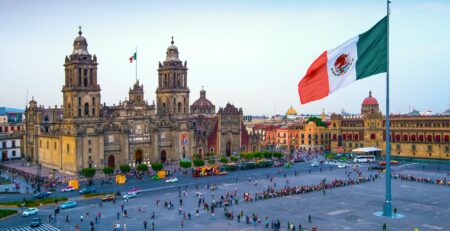Nigeria. Investing pension funds: Worries, prospects by stakeholders
Just before the federal government decided to step down borrowing from the dormant pension fund, reactions ranging from worries to expectations continued to trail the plan by government to utilise N2 trillion of the current N10 trillion available pension fund in developing infrastructure through the creation of products that Pension Fund Administrators (PFA) would be attracted to invest in.
The government’s plan is aimed at improving infrastructure such as railway, road, electricity, among others, while also creating areas of opportunities of investment for the PFAs. Following the proposed action, stakeholders, especially pensioners and several labour unions, have insisted that the government should hands off the pension fund in line with the law that established the Contributory Pension Scheme (CPS).This resulted from fear of returning the payment of retirees’ entitlement to the messy situation that existed during the defunct Defined-benefit Pension Scheme (DPS).
Stakeholders views
Senator Ibrahim Shekarau, the chairman of the Senate Committee on Establishment and Public Service said in December 2019 that the federal government owed retirees an accrued pension fund of over N400 billion.Mrs Aderonke Adedeji, president, PenOp, however, said that the proposal by the government was for the pension funds to be invested in instruments and securities. Adedeji said the proposal was in tandem with what was being done with the FGN bonds and treasury bills that the PFAs currently invest in. According to her “The major difference in this case is that the proceeds would be used specifically for infrastructure.“We believe that the federal government has a name and credit rating to protect.“A default on their obligation to investors would be extremely damaging to the government and the economy as a whole, both locally and internationally,” she said.
According to her, the plan when implemented would be to the benefit of all. Adedeji noted that every individual under the CPS since its establishment has a Retirement Savings Account (RSA) and knows how much he or she has in the account.She said investment by the PFAs, according to the law, would not deter payment of their accrued rights as and when due.“We must all fight to ensure things remain this way,” she said.The PenOp’s president explained that since the PFAs were already investing in government securities, which had been successful, the plan to invest in infrastructure would not affect the industry or pensioners negatively. Adedeji said that government, with help from the industry, must work out modalities that would ensure that the infrastructure investments are safe. She noted that the government must also follow the investment guidelines laid down by National Pension Commission (PENCOM) and provide decent returns for the pension funds and ultimately the contributors and retirees.On the backlog of over N400 accrued pension fund owed by the federal government, Adedeji said it related to the pension liabilities that the federal government had before the reforms that culminated in the Pension reform Act of 2004.“The Act states that those employees in the public service of the federation who had accrued pensions before the enactment of the law would have the federal government retirement bonds in the amount they are being owed issued to them by the Debt Management Office (DMO).“The act further stated that these debts would be funded by the federal government and paid into a redemption fund not less than five per cent of the total monthly wage bill payable to employees in the public service of the federation,” she said.
According to her, it appears that the funding has not been sufficient and that is why there is a backlog.Adedeji said that the government had claimed to have earmarked some amount in this year’s budget to redeem part of the liability, which is a good start.She urged the government to ensure that the entire outstanding is cleared quickly and also return to the days when accrued rights were credited to RSAs within a month or two following retirement.“In addition, the government can explore the payment of this accrued rights through a one-time bond issue,” she said.
Read More @Blue Print










